Discovering if you have royal blood can be a thrilling idea. You might want to connect with historical narratives or understand your unique heritage. The challenge lies in finding a DNA test that can reliably trace such prestigious lineage in a market saturated with options, which can lead to confusion and skepticism about accuracy and privacy.
In my quest to demystify these claims, I have thoroughly tested various DNA kits. My focus was on the depth of ancestral analysis, database size for matching, and the capacity to pinpoint aristocratic lineage. From this rigorous examination, I have identified the top DNA kits suited for revealing royal ancestry.
AncestryDNA stands out as the optimal choice for royal ancestry searches. Its expansive genetic database enhances the probability of linking you to noble forebears. Moreover, its detailed regional breakdown supports precise tracing of lineage, and stringent privacy measures ensure your genetic information remains secure. These features collectively make AncestryDNA the reliable tool for uncovering regal roots.
Short on Time? Here are the best DNA test kits for royal ancestry
- AncestryDNA – Best overall DNA test for royal ancestry thanks to its large database of DNA samples and historical records.
- 23andMe – Best for its wide global coverage and popularity which means you have a higher chance of finding royal relatives.
- MyHeritage – Best affordable test for royal ancestry with prices starting at $89; also offers a great family tree and historical records.
- LivingDNA – Best DNA test for exploring the health implications based on royal ancestry, as well as tracing your roots.
- FamilyTreeDNA – Best for analyzing your maternal and paternal lineage separately, as well as building your family tree.
- Nebula Genomics – Best for decoding 100% of your DNA to get accurate information on whether you have royal ancestry.
Our Best DNA Kits for Royal Ancestry Reviewed
1. AncestryDNA — Best Overall DNA Kit for Tracing Royal Ancestry
- The largest database of DNA in the world (18 million samples)
- Family tree builder with access to historical records
- Simple saliva swab
- Results in 6 to 8 weeks
AncestryDNA’s expansive genetic database shines brightest when it comes to uncovering royal connections. With millions of DNA samples at its disposal, the likelihood of discovering matches to potential relatives with regal lineage is significantly heightened. This extensive repository enables thorough analysis of your DNA against a wide array of historical patterns and genetic markers commonly linked to noble lineages.
The specificity of AncestryDNA’s regional analysis is particularly valuable for royal ancestry because it dissects your DNA across 1,000+ regions worldwide. It can isolate areas in Europe, for example, where royal bloodlines were prominent, providing you with a detailed geographic context for your ancestral roots.
AncestryDNA’s ThruLines feature gives you a clear view of how you may be related to royalty. By constructing a family tree with the information provided by your DNA matches, it offers insights into the historical figures and potential royal ancestors in your lineage, showing you the direct line of descent where applicable.
Privacy is paramount with AncestryDNA, which is crucial when dealing with sensitive information like potential royal ancestry. It employs strong data encryption and gives you control over your DNA data, ensuring that your genetic information and the intriguing discoveries about your royal roots are protected.
2. 23andMe — Popular DNA Test With Higher Chance of Connecting You to Royalty
- Compares your DNA against 45 known populations
- Traces your DNA across 2750+ regions
- Includes traits report with its basic screening
- See if you have Neanderthal ancestry
- Results in 3 to 4 weeks
23andMe offers a feature that allows you to explore your genetic lineage, potentially connecting you to royal ancestry. By analyzing your DNA, it can trace back generations, identifying markers that are common in certain royal bloodlines. This process involves comparing your genetic information with that of known historical populations, including those with royal heritage.
Another useful feature is the Ancestry Composition report. It breaks down your DNA by region, showing you where your ancestors came from. If it detects markers that are more prevalent in regions known for historical monarchies, you might have a royal connection. This tool visualizes your genetic makeup on a world map, making it easier to see the geographical distribution of your ancestry.
23andMe also provides a Relative Finder tool, which can connect you with living relatives. This feature is particularly interesting for those with royal ancestry because it can identify distant cousins who share segments of DNA with you. If these relatives are linked to known royal lineages, it strengthens the evidence of your royal roots.
Lastly, the platform offers detailed Neanderthal ancestry reports that, while not directly related to royal ancestry, enrich your understanding of your ancient heritage. Knowing if you have more or less Neanderthal DNA than the average person might not lead you to a throne, but it adds depth to your ancestral profile, illustrating the complexity of human migration and evolution that underpins even the most noble of lineages.
3. MyHeritage — Best Affordable DNA Kit for Tracing Royal Roots
- Offers a relative finder feature
- Bring your family tree to life with images, videos and music
- Simple saliva swab
- Results in 3-4 weeks
MyHeritage offers a comprehensive DNA test that’s specifically adept at uncovering European ancestry, which is pertinent if you’re investigating potential royal lineage. It analyzes your DNA against a vast database, pinpointing genetic links to potential noble ancestors. With a focus on European genealogy, it’s particularly useful if you’re tracing ancestors from royal bloodlines, as many European monarchies are well-represented in its database.
The platform’s Smart Matches technology enhances the search for royal connections by cross-referencing your family tree with millions of others. When it finds similarities, it alerts you, providing a direct path to discovering royal lineage. It’s not just about who you are related to; it’s about understanding the historical narrative that ties you to the past.
Another feature is the Chromosome Browser, which allows you to compare your genetic data with that of others, giving you a chromosomal view of your lineage. This feature can be instrumental in confirming relationships with distant relatives, possibly linking you to royal ancestors through shared DNA segments.
Ethnicity Estimate is another key feature of MyHeritage. It provides a percentage-based breakdown of your ethnic origins. For those with European roots, it can be a window into the regions where royal ancestors may have originated, giving you a clearer picture of your genetic heritage and a starting point for deeper historical research.
4. LivingDNA —Best For Health Insights Based on Royal Roots
- Health insights along with your ancestry report
- Match with relatives
- Simple saliva swab
- Results in 6-8 weeks
When you explore your genetic makeup with LivingDNA, its detailed ancestry test provides insights into your lineage, potentially linking you to royal ancestry. It compares your DNA to reference data from global populations, including historical royal lineages. If there are genetic overlaps, LivingDNA can highlight these noble connections, offering you a unique view into a royal heritage that may form part of your genetic story.
LivingDNA stands out in the realm of health genetics by analyzing your DNA for markers that could relate to traits and conditions prevalent in historical royal families. It deciphers your genetic code to identify if you carry certain traits that were once recorded in royal bloodlines. By doing this, it provides a deeper understanding of how your DNA might influence your health in a context that connects you to the past.
The platform integrates historical data with modern genetic science, so when you use LivingDNA, you receive a report that not only traces your royal roots but also gives you a health perspective influenced by those roots. It draws from a rich database of genetic information linked to royalty, offering you a health report that feels personalized and steeped in history.
LivingDNA’s ability to weave together your royal ancestry and health insights makes it a valuable tool for understanding how your genetic heritage shapes your well-being. It doesn’t simply list potential royal ancestors; it illustrates how your genes may affect your current health, giving you a comprehensive look at the interplay between your lineage and lifestyle.
5. FamilyTreeDNA — Best For Tracing Maternal or Paternal Lineage Separately
- Traces maternal and paternal haplogroups
- Matches you with relatives intuitively
- Simple saliva swab
- Results in 6-8 weeks
When you’re delving into your royal ancestry, FamilyTreeDNA can illuminate your maternal line through its mtDNA test. It analyzes mitochondrial DNA, which you inherit exclusively from your mother. This tool is precise in revealing direct maternal ancestors and their origins, which is essential for understanding your connection to historical maternal lineages, potentially linking you to royal bloodlines.
For paternal lineage, it offers a Y-DNA test, which is only available for those with a Y chromosome. This test traces your direct paternal line, going back many generations. It’s particularly useful if you’re looking to confirm a relationship with a surname or a historical figure from your father’s side. Since royal succession often follows the paternal line, this can be a crucial piece of the puzzle in royal lineage research.
FamilyTreeDNA’s database allows for comprehensive family matching. It’s capable of connecting you with distant relatives who share segments of DNA. This feature is particularly beneficial if you’re looking to corroborate family lore about royal ancestors. By finding and connecting with these relatives, you can expand your family tree and solidify your royal lineage claims.
Lastly, FamilyTreeDNA takes privacy seriously. Your genetic information is secure, and it’s up to you to opt into sharing your DNA data for family matching. For those researching sensitive or private aspects of a family tree, such as royal ancestry, this ensures your explorations and connections remain under your control.
Get Started With FamilyTreeDNA
6. Nebula Genomics — Best for Whole Genome Sequencing
- Large database and whole genome sequencing to find relatives
- Traces your maternal and paternal lines
- Simple saliva swab
- Results in 8-10 weeks
When you’re exploring your royal ancestry through DNA, Nebula Genomics provides comprehensive whole genome sequencing. This approach decodes 100% of your DNA, unlike typical tests that sample a fraction. This full scope means it captures the complete set of your genetic information, ensuring that any links to royal lineages are less likely to be missed.
With its detailed sequencing, Nebula Genomics offers a deep dive into your ancestral origins. It identifies your genetic markers that reference a vast database, including those associated with historical populations. This feature increases the accuracy of tracing your lineage back to potential royal connections.
It also employs advanced bioinformatics to interpret dense genetic data, translating complex information into an understandable ancestry report. This report highlights your lineage with potential ties to nobility, giving you a clearer picture of your genetic heritage.
Nebula Genomics keeps your data secure while providing ongoing updates to your genetic information. As research evolves and new discoveries are made regarding royal bloodlines, it updates your profile, offering you a continually refined view of your ancestry. This service ensures you have the latest information on your connection to royal DNA.
Get Started With Nebula Genomics
Tips On How to Choose the Best DNA Test Kit for Royal Ancestry
When selecting the best DNA test for royal ancestry, it’s essential to consider several factors to ensure you choose a kit that meets your specific needs. The accuracy of the genetic testing, the size of the DNA database, and the depth of ancestral information provided are crucial aspects.
- Database Size and Ethnicity Estimates: Look for a DNA test that has a large and diverse database. A more extensive database increases the chances of finding matches and provides a more comprehensive analysis of potential royal lineage. Additionally, a service that offers detailed ethnicity estimates can help pinpoint regions associated with historical royal bloodlines.
- Historical Records Integration: Some DNA tests are integrated with historical records and offer tools for building family trees. These features are valuable because they allow you to trace your lineage and see connections to potential royal ancestors through documented historical sources.
- Genetic Markers for Royal Lineage: Certain tests specialize in deep ancestry and can inform you if you carry genetic markers that are associated with royal bloodlines. These specialized tests can analyze Y-DNA or mtDNA haplogroups that are often used to trace direct paternal and maternal lines, which can be relevant to royal ancestry research.
- Privacy Considerations: Privacy is a significant concern in DNA testing. Understand the privacy policies of the DNA testing company you choose, particularly regarding how they store and use your genetic information and if they share data with third parties.
- User Interface and Support: The best DNA tests offer a user-friendly interface and provide robust customer support. The ability to easily understand and navigate your results is essential, as is access to genetic counselors or customer service for questions about your royal ancestry.
- Peer Reviews and Community: Lastly, consider reviews and feedback from other users, especially those who have also been interested in tracing royal ancestry. Many DNA testing services have communities where you can share experiences and insights, which can be particularly helpful.
By taking into account these elements, you can select a DNA test for royal ancestry that is both reputable and tailored to uncovering your unique heritage.
Understanding Gene Markers Associated with Royal Lineages
Exploring royal lineage requires focusing on particular Y-DNA and mtDNA haplogroups often associated with historic royal families. For instance, Haplogroup R1b is widespread in Western Europe, where many royal dynasties originated. Similarly, certain mtDNA haplogroups link to ancient royal maternal lines. Finding these markers in your DNA may indicate connections to royal ancestors. Yet, it’s crucial to understand that these markers are not exclusive to royalty. They appear widely in the general population, reflecting historical migrations and intermarriages.
Health Conditions Peculiar to Royal Bloodlines
Researching royal ancestry isn’t just about tracing lineage; it’s also understanding the unique health implications. Royal families often intermarried, which led to a higher prevalence of certain genetic disorders. For instance, hemophilia was famously known as the “royal disease” after Queen Victoria’s descendants spread it across European monarchies. Modern DNA tests can screen for markers associated with these conditions, offering insights into the health aspects of your royal heritage.
Cultural Significance of Royal Ancestry
Royal ancestry carries significant cultural implications. Discovering a connection to royal roots can provide a deeper understanding of the customs, traditions, and historical contexts of the regions your ancestors hailed from. DNA tests can sometimes offer an ethnicity estimate, shedding light on the cultural tapestry of your genetic makeup. Delving into these aspects can enrich your knowledge of your family’s historical milieu and how it shaped their lives and, by extension, yours.
Deep Diving into Historical Records
Pairing DNA test results with historical records is pivotal for anyone serious about tracing royal ancestry. While DNA can suggest geographical and potential lineage links, historical documents like birth, marriage, and death records; property ownership; and noble registers are indispensable for confirming relationships and piecing together your royal heritage. Resources like national archives, genealogical societies, and online databases specializing in noble lineages are essential tools for this research.
Tracing Royal Roots in Africa Through DNA
Africa’s rich tapestry of kingdoms and tribes presents a diverse array of royal lineages. DNA testing can uncover connections to these lineages, with certain African haplogroups pointing to royal ancestry among well-documented dynasties like the Pharaohs of Egypt or the historical empires of Mali and Ethiopia. Genealogical research can be challenging due to scant records, but DNA results can be a starting point for uncovering links to African royal bloodlines, prompting further exploration into oral histories and tribal connections that are often key to African ancestral research.
Unraveling the Complexities of Asian Royal Heritage
Asia’s long and complex history of empires, kingdoms, and dynasties means that royal ancestry is a mosaic of genetic and historical threads. Specific haplogroups can indicate connections to the royal families of China, the aristocracy of Japan, or the Mughal emperors of India. Due to Asia’s extensive written records, individuals with potential royal Asian ancestry can often find a wealth of historical documentation to complement their DNA findings, providing a more nuanced understanding of their royal roots.
Discovering Indigenous and Tribal Royalty in the Americas
Before European contact, the Americas had their own complex systems of royalty and nobility. DNA testing can provide insights into connections with the ruling classes of pre-Columbian civilizations like the Maya, Aztec, or Inca. These tests can also help identify lineage ties to the chieftains and nobility among North American tribes. Such findings encourage exploration into the rich oral histories and tribal records that are integral to the indigenous heritage of the Americas.
Royal Lineages in Oceania and the Pacific Islands
The Pacific Islands have a unique royal heritage, with chieftaincies and noble classes that hold historical importance. DNA testing can reveal Polynesian, Micronesian, or Melanesian ancestry, which, when combined with genealogical research, can trace lineage back to historical figures of renown. Due to the oral tradition of history-keeping in many Pacific cultures, connecting DNA findings with family tales and local histories is essential for a comprehensive picture of one’s royal ancestry.
The Significance of the Silk Road on Royal Ancestry
The Silk Road was not only a trade route but also a cultural melting pot that influenced the genetics of various regions, including the ruling classes. The movement of peoples and the intermarriages among different royal families along these routes means that DNA testing can sometimes reveal unexpected connections to distant royal lineages, highlighting the interconnected nature of ancient royal bloodlines. This necessitates a deeper investigation into migratory patterns and historical trade relationships to fully grasp the extent of one’s royal heritage across regions.
Quick Comparison Table: Best DNA Tests for Royal Ancestry
For a more detailed look, I’ve provided actual data for each DNA kit’s database size and added additional relevant features for comparison.
| DNA Kit | Database Size (in millions) | Relative Finder | mtDNA & Y-DNA Mapping | Family Tree Builder | Time to Results (in weeks) | Price |
|---|---|---|---|---|---|---|
| Ancestry | 18 | Yes | No | Yes | 6-8 | $199.00 |
| 23andMe | 13.6 | Yes | Yes | Yes | 3-4 | $229.00 |
| MyHeritage | 3.8 | Yes | Yes | Yes | 3-4 | $89.00 |
| LivingDNA | 1.5 | Yes | Yes | Yes | 6-8 | $105.00 |
| FamilyTreeDNA | 2 | Yes | Yes | Yes | 6-8 | $79.00 |
| Nebula Genomics | 0.7 | Yes | Yes | No | 8-10 | $249.00 |
Get the Best DNA Test Kit for Royal Ancestry
Understanding royal ancestry involves piecing together historical connections and genetic heritage. A robust DNA test kit can unravel these complexities, offering insights into lineage and bloodlines. By analyzing genetic markers that are passed down through generations, it pinpoints your relation to historical figures and nobility.
I’ve found that AncestryDNA stands out as the best DNA test kit for this purpose. Its expansive genealogical databases and sophisticated algorithms effectively map genetic links to royal lines. AncestryDNA’s detailed ethnicity estimates and potential relative matches provide a comprehensive understanding of your ancestral ties to royalty.
FAQs on DNA Kits for Royal Ancestry
How accurate are DNA tests for determining royal ancestry?
DNA tests for royal ancestry can provide indicators of your connection to royal lineages based on genetic markers, but they are not definitive proof. The accuracy depends on the test’s methodology, the size of the testing company’s reference database, and the presence of well-documented genealogical records. They are best used as a starting point for further historical and genealogical research.
Can a DNA test tell me which royal family I’m related to?
A DNA test may suggest a connection to a broad region or population where royal families ruled, but it typically cannot specify a relationship to a particular royal family. For precise connections, DNA results need to be combined with family tree research and historical documents.
What types of DNA tests are best for tracing royal lineage?
Tests that analyze Y-DNA and mtDNA are most useful for tracing direct paternal and maternal lines, which can be relevant for royal lineage as these tests reach further back in time. Autosomal DNA tests are also useful as they provide a wider genetic picture, although they typically cover genealogical connections within the last 5 to 7 generations.
Are there any privacy risks involved in taking a DNA test for royal ancestry?
There are inherent privacy risks in DNA testing since it involves sharing your genetic information with a third party. It’s important to carefully review the privacy policy of the DNA testing company to understand how your data will be used, stored, and shared, including whether the company collaborates with law enforcement or third-party researchers.
Is it possible to connect with living relatives who also have royal ancestry through DNA testing?
Many DNA testing services offer matching features that allow you to connect with living relatives based on shared DNA segments. This can potentially help you find others with royal ancestry, although the exact nature of your shared ancestry might not be clear without additional research.
How should I start researching my royal ancestry after taking a DNA test?
After receiving your DNA test results, you should begin building a family tree and looking for historical records that match your genetic ancestry. Collaborating with genealogists, joining ancestry forums, and utilizing resources like historical societies and online databases can also aid in constructing a detailed family history.
In conclusion, the best DNA Kits for royal ancestry are…
| Our Rank | Provider | Our Score | Starting Price | |
|---|---|---|---|---|
| 1 | 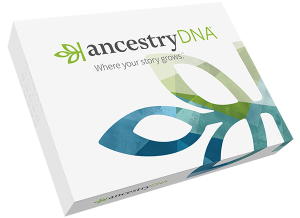  | Read Review | $99.00 | Visit Website |
| 2 | 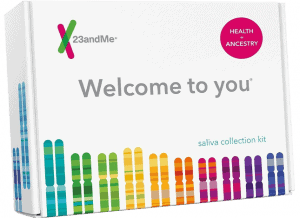  | Read Review | $99.00 | Visit Website |
| 3 | 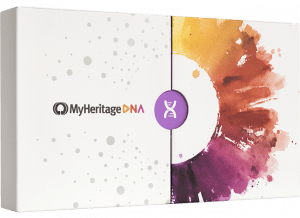  | Read Review | $89.00 | Visit Website |
| 4 | 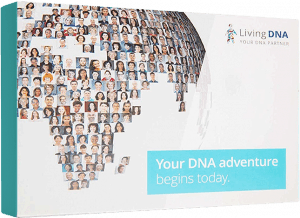  | Read Review | $90.00 | Visit Website |
| 5 | 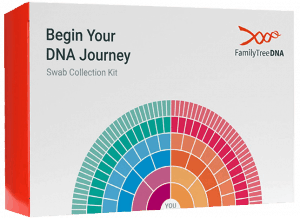 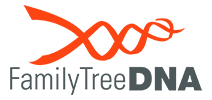 | Read Review | $79.00 | Visit Website |






